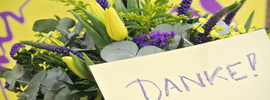Leonardo Boff: Officially Old
This December I turn 70 years old. By Brazilian standards, I am now officially an old man. That does not mean that I am closer to death, for death can happen from the first moment of life. But it is another period of life, the last one. It has a biological dimension, because, inevitably, the vital capital is exhausted, we become debilitated, lose the vigor of the senses and slowly say farewell to everything. In fact, we also are more forgetful, perhaps, more impatient and sensitive to gestures of kindness that easily bring us to tears.
But there is another aspect, a more interesting one. Old age is the last stage of human growth. We are born whole, but we are never completed. We must finish our birth, creating our existence, opening up paths, overcoming difficulties; molding our destiny. We are always in genesis. We start being born, we continue being born, by stages throughout life until we finish our birth. Then, we enter the silence. And we die.
Old age is the last opportunity life gives us to finish our birth, to mature and finally, to end our birth. In this context Saint Paul's words are illuminating: «To the same extent that the outer man perishes, the inner man is renewed.» (2 Corinthians 4,16). Old age is a demand by the inner person. What is the inner person? It is our deepest self, our singular way of being and behaving, our trade mark, our most radical identity. We must confront this identity, face to face.
It is intensively personal, and hides behind the many masks that life imposes on us. For life is a big stage on which we play many roles. I, for example, was a Franciscan, a priest, now a layman, theologian, philosopher, teacher, lecturer, writer, editor, contributor to some magazines, who has been investigated by the doctrinal authorities of the Vatican, and subjected to «obliged silence»... plus some other roles. But there is a moment when all that becomes relative and turns to pure nothing. Then we leave the stage, take off the masks and ask ourselves: in the end, who am I? What dreams move me? Which angels inhabit me? What demons torment me? What is my place in the design of the Mystery? To the degree that we try, trembling with dread, to answer these questions, the interior person emerges. The answer is never conclusive; it gets lost within in the Ineffable...
That is the challenge of old age. We then realize that we would need many years of old age to find the essential word to define us. We are surprised to discover that we do not live simply because we do not die, but that we live to think, to meditate, to pierce new horizons and create meaning for life. It is especially to attempt to make a final synthesis, to integrate the shadows, feeding again the dreams that sustained us throughout our whole life, reconciling with our failures and seeking wisdom. It is illusory to think that wisdom comes with old age... It comes with the spirit with which we live out our old age, as the final stage of our growth and of our true Nativity.
Lastly, it is important to prepare for the great Encounter. Life is not structured to end in death, but to be transformed through death. We die to live more and better, to submerge ourselves in eternity and find the Ultimate Reality, made of love and mercy. Then we will finally know who we are and what is our real name.
I treasure the sentiment of the wise man of the Old Testament: «I contemplate the days already gone and turn my eyes towards eternity.»
Finally, I nurture two dreams, dreams of a young old man: the first is to write, if possible, with my own blood, a book just for God to read; and the second, which is impossible, but well expressed by Herzer, little street girl and poet: «I wanted only to be born again, to teach myself how to live.» But since that is unattainable, I only want to learn in the school of God. Paraphrasing Camões, I end: «I would live more if it were not, for such a great ideal, so short a life.»
Leonardo Boff (zu seinem 70. Geburtstag am 14.12.2008)
Zuletzt geändert am 16.12.2008


